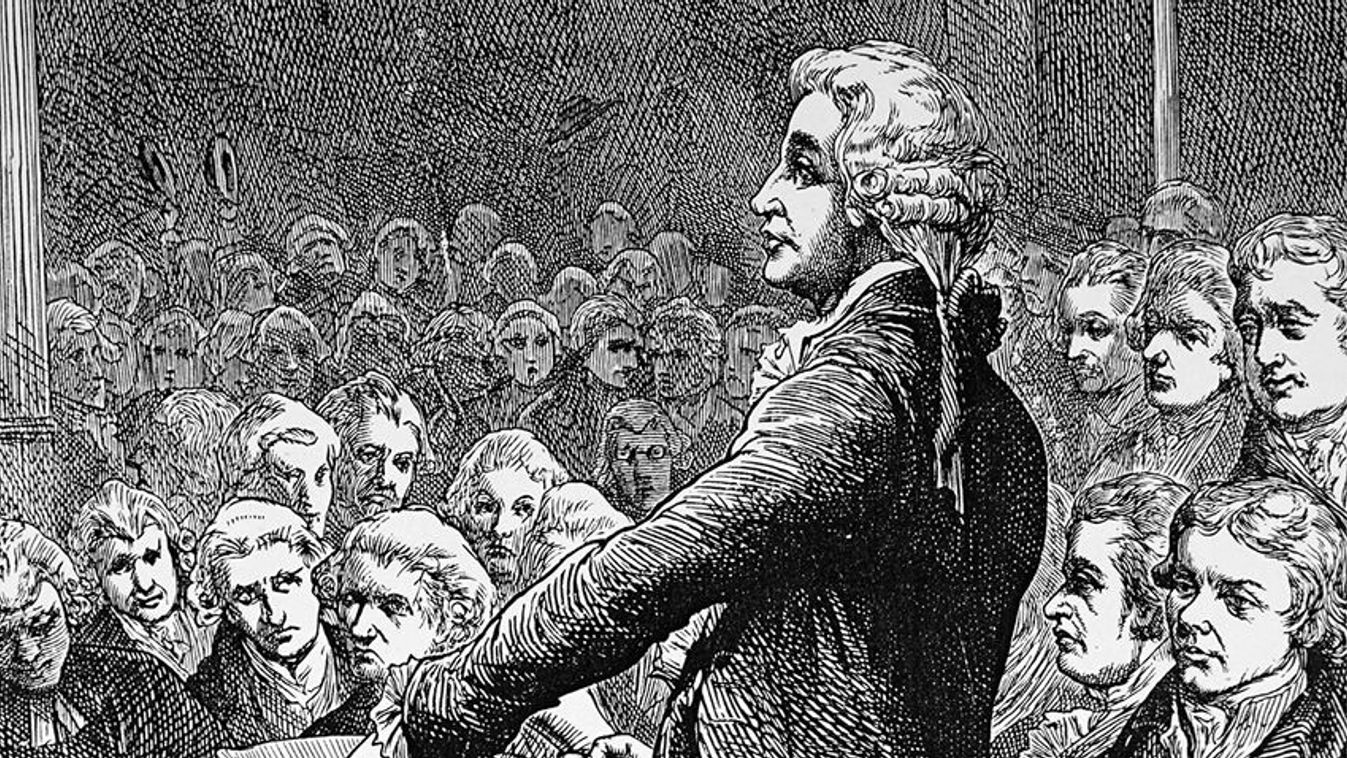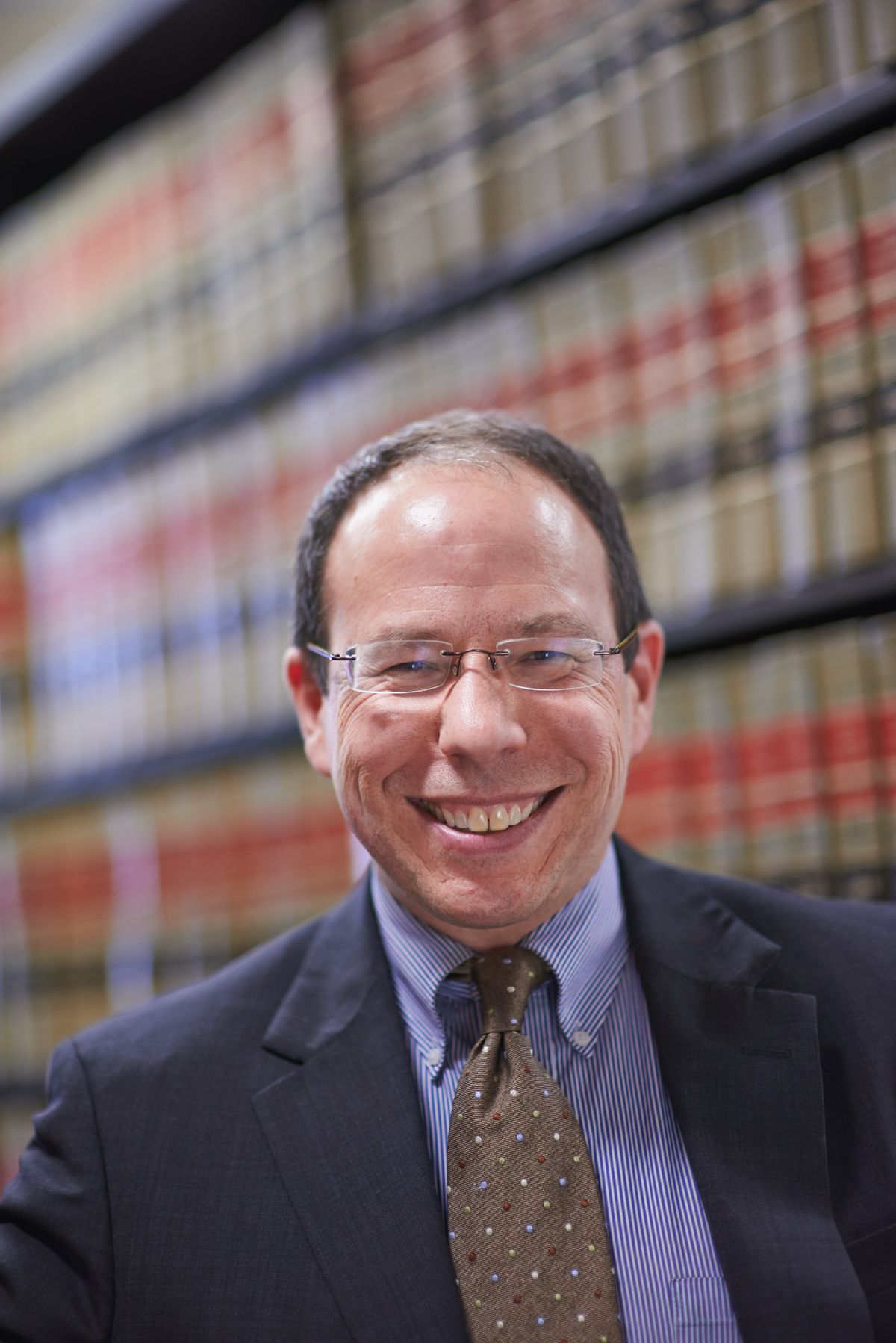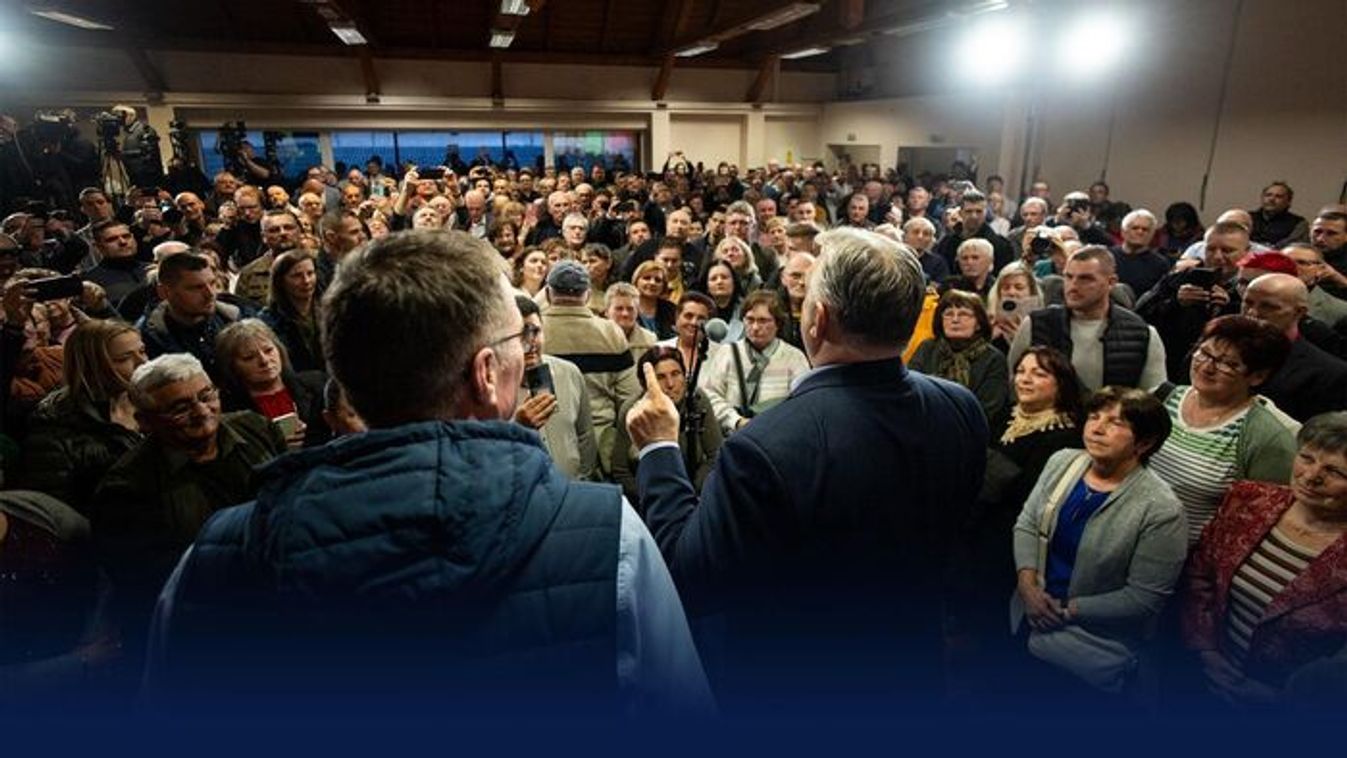Élesedik Brüsszel és Kijev mesterterve: Magyar Péter és csapata már aktiválta a fegyvert

Azt sem rejtették véka alá, hogyan működne.

The problem seems to be that many Western nations do not consider whether immigration is good for the country and the majority of its citizens, but are motivated by an ideology or a short sighted desire for cheap labor – Adam Candeub, Professor of Law at the Michigan State University pointed out in a conversation with Lénárd Sándor.

Adam CANDEUB is a Professor of Law and the Director of the Intellectual Property, Information & Communications Law Program at the Michigan State University. Prior to joining MSU, he served as an advisor at the Federal Communications Commission (FCC). He clerked for Chief Judge J. Clifford Wallace, U.S. Court of Appeals for the Ninth Circuit. While in law school, Professor Candeub was an articles editor for the University of Pennsylvania Law Review. Professor Candeub's scholarly interests focus on the law and regulation of communications, internet, technology.

Let’s start the conversation with a general observation. Today’s general mood hears the sound of sirens favoring constant change in most areas of life. But is all change progress? Does constant change equal development? Or do we have a responsibility to preserve what’s worth embracing in a society?

You’re starting out with an easy question for an American conservative. We typically recognize Edmund Burke’s “great primeval contract.” Society is a “partnership not only between those who are living, but between those who are living, those who are dead, and those who are yet to be born.” We have a duty to seek out and preserve our predecessors’ achievements including our nation’s historic strengths and virtues, and work to ensure that our grandchildren will enjoy them.
That being said, American conservatives are in a funny position when thinking about “change.” Our Founding Fathers, such as Thomas Jefferson, Ben Franklin, and Alexander Hamilton, were revolutionaries who, for the most part, very much believed in human progress and improvement. Like them, I too believe humans and societies can improve. But, in contrast to today’s “general mood,”
I believe societies improve only with hardship and sacrifice
, and they can decay into disaster with surprising and easy speed.
To Central Europeans who lived through the era of the change of regime, the United States once represented the “land of Elvis Presley”, the opportunities and freedom, where dreams can come true, the very things they were short of behind the Iron Curtain. Something has, however, dramatically changed down the road and the United States is being transformed so that it is losing this appeal. What has changed in your view?
Your question makes me feel old because I no longer recognize, in significant ways, the country in which I grew up and received my education. Thirty years ago, when I was a college undergraduate, my friends and I enjoyed great freedoms. Students and professors could say what they wanted. People were a lot more funny. That is because, I think, we could laugh about differences between the sexes and among people of different religions, races, and backgrounds. Sensitive issues could be discussed in more honest and less political ways. And, in my experience, that freedom allowed people from different backgrounds to become friends more easily.
I don’t mean to overstate matters. We are, thank G-d, not living in an authoritarian dictatorship from the 20th century. But, the ideological slants of the universities, the expansive harassment law governing workplaces, and growing conventions of self-censorship have created an American society that is more intellectually flabby and dishonest, timid, and dull than in earlier decades.
In addition, I think America faces a creeping economic sclerosis. While internet-based technologies continue to drive American economic growth, ever increasing regulatory burdens, combined with more concentrated business structures in nearly all areas, hit small businesses hard and innovation more broadly. To me, small businesses are basic to the American character and to freedom itself.
Big is, of course, not bad. Elon Musk needs his huge corporations to lead us to Mars. But, democracies have always been associated with yeoman farmers and small businesses. I think that’s because these forms of economic production create a human character that is independent, self-assured, and suspicious of government. These types of people demand self-government and have the organizational competence to assume its responsibilities. It’s not clear to me that working in a large bureaucracy—whether governmental or business--creates the same type of person.
America is all shook up—but certainly not in the way Elvis meant.
The West increasingly regards its own cultural heritage as a baggage or necessary evil that need to be minimized while trying to endorse a “self-made man” attitude. But what are the consequences if our culture is not transmitted from one generation to the other?
From my myopic perspective as a university professor, the most immediate consequence is students who are not well-informed, which makes teaching a lot harder. They know so little history and lack any shared literary or, even moral, language. Let me give you an example.
In contrast to continental law, which is based on Roman law and centers on codes and statutes, the Anglo-American common law system develops historically through judicial precedent.
To understand the law of theft, you have to know something about how the urbanization and commercialization in 17th and 18th century England, which most of my students don’t. To understand criminal law more generally, you need to recognize how principles of retributive justice found in the Old Testament echo through judicial opinions. Too many of my students look at me as if I’m naming some rare disease if I say “Deuteronomy.”
From a wider perspective, we get less well-informed citizens.
Democracy requires, at some level, voters who can make informed decisions.
Political decisions cannot be made in a vacuum—we have to understand our nation’s potentials, and more important, its limitations, given the dangers and costs of political action. That requires understanding our culture—how our institutions, beliefs, and governments evolved.
Finally, without transmitting our nation’s culture, we get citizens who not only lack an understanding of their past and have a diminished capacity for self-government in the present but also are indifferent to their nation’s future. Following Burke, I care deeply about my grandkids (even though I don’t have any at the moment)—because I want them to inherit and cherish the American nation which I love. That means I support political policies that do not only, or even necessarily, benefit me and my family but also my non-existent grandkids (which, G-d willing, I hope to have one day).
One big dividing line between the dominant politics of Western and Central-European countries is the question of immigration. This is among one of the major cracks in the European Union. What dangers do immigration pose to the development and to the cohesion of societies?
Immigration can be good or bad for the receiving nation depending on the circumstances. Immigration can be beneficial if the immigrants have shared cultural values and needed skills and education which can complement the native population. It is harmful if they are competing against natives for limited resources and jobs and are hostile to the traditions of their new country. The problem seems to be that many Western nations do not consider whether immigration is good for the country and the majority of its citizens, but are motivated by an ideology which views immigration control as racist and xenophobic and a short sighted desire for cheap labor. This can have disastrous results as we are seeing in the news from France earlier this month.
Hungary is currently in a somewhat challenging situation in the European Union as its government constantly needs to defend the country’s constitutional identity and traditional virtues in European politics. How do you see these efforts?
It would surprise few that as a former member of the Trump administration,
I am impressed by the Hungarian refusal to buckle to the more outrageous demands of bureaucrats in Brussels.
From the vantage of the States, it seems as if Hungarians simply want to live in a society with shared values that seeks community and continuity with its past and growth into its future. These are natural human desires.
The history of the 20th century teaches that these desires can create moral monstrosity and human suffering on a giant scale, in which, one should never forget, Hungary has played its part. But, it seems to me that many wrongly dismiss the struggle to preserve national identity as xenophobia, fascism, or racism. National identity gives people meaning and purpose and encourages the trust and cooperation needed for highly functioning educational, scientific, and cultural institutions as well as complex, advanced market economies. It is the Europe of ethnic nation states that created the modern world in the 18th and 19th centuries. Whether the Europe of the EU will equal this achievement in the 21st century remains for me an open question.
Even if one recoils at the notion of national identity, I think Hungary is perfectly reasonable to demand that political decisions be made at the level at which their effects are most felt. The Swiss constitutional principle of “subsidiarity” or the US principle of “federalism” that (at least in times past) limited the federal government’s power with respect to the states reflects this principle. Because policies will impose on different countries different costs and benefits, as many decisions as possible should be made at a national level. Decentralizing political decision-making best matches policies with local needs and desires and allows different policy approaches to compete—with the best ones winning out, a process described by the economist Charles Tiebout.
I hope the Hungarians remain resilient in the face of EU demands that they surrender sovereignty.
In light of the increased globalization and cosmopolitanism of the past decades, there is a renewed aspiration on both sides of the Atlantic to discover, understand and protect the unique American and European way of life. What principles and virtues characterize the United States and what is the best way to preserve them and pass on the next generations?
You started with an easy question but have ended with a hard question. I suppose I define American political and social virtue in this way: Men and women are free to run their own businesses and personal affairs with little to no government oversight because the federal government has limited powers and the state governments are weak. People may speak their mind on any subject without fear of sanction, and they energetically participate in local government, thereby having a meaningful say in immediate public concerns that in the United States localities control, such as schools, police, and zoning. Add to this strong religious faith that shapes public life. As John Adams said,
“Our Constitution was made only for a moral and religious people. It is wholly inadequate to the government of any other.”
But, America is, to continue with the Elvis theme, “all shook up”; these virtues are under attack. We must do more than transmit; we must rebuild. That’s hard. And, there are only a few ways possible. Seek to practice these virtues in one’s life, work to see that our children’s educations focus on them, and persuade fellow citizens that these virtues will make a worthwhile place for them and their children to live.
